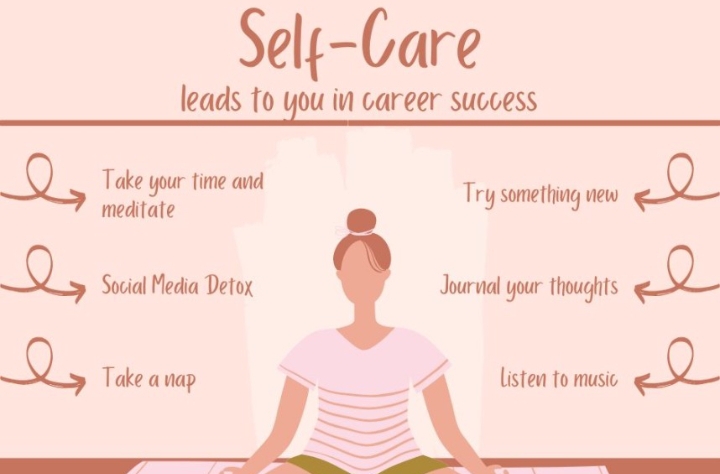
Self-care is often perceived as a luxury or an indulgence, something reserved for moments of leisure or abundance. However, in an increasingly fast-paced and demanding world, self-care has become an essential practice for maintaining physical, mental, and emotional well-being. This blog explores the significance of self-care, the various dimensions it encompasses, and practical strategies to integrate it into daily life.
The Concept of Self-Care
Self-care refers to the actions individuals take to preserve or enhance their health and well-being. It involves recognizing personal needs and taking deliberate steps to address them. Far from being selfish, self-care is a foundational practice that enables individuals to show up fully in their personal and professional lives. It’s about creating a sustainable lifestyle that nurtures rather than depletes.
The Myths Surrounding Self-Care
Despite its importance, self-care is often misunderstood. Some common myths include:
- 1. Self-Care is Selfish: Many people feel guilty about prioritizing themselves, fearing it detracts from their responsibilities to others. In reality, taking care of oneself enhances the ability to care for others.
- 2. Self-Care is Expensive: While luxury spa days and retreats are appealing, self-care doesn’t require financial investment. Simple practices like deep breathing, going for a walk, or journaling can be equally effective.
- 3. Self-Care is Time-Consuming: In truth, even a few minutes of intentional self-care can yield significant benefits.
The Importance of Self-Care
Physical Health
Self-care is integral to maintaining physical health. Activities like regular exercise, balanced nutrition, and adequate sleep are foundational elements of well-being. Neglecting these areas can lead to chronic stress, fatigue, and a weakened immune system.
- 1. Prevention of Illness: Routine self-care practices reduce the risk of developing illnesses by enhancing the body’s resilience.
- 2. Increased Energy Levels: Proper nutrition, hydration, and exercise boost energy, enabling individuals to handle daily challenges more effectively.
Mental Health
The modern world’s demands often take a toll on mental health. Self-care acts as a buffer against stress, anxiety, and burnout.
- 1. Stress Management: Practices like mindfulness meditation, yoga, and time management help reduce stress levels.
- 2. Emotional Regulation: Reflective activities, such as journaling or therapy, enhance emotional awareness and resilience.
- 3. Boosted Self-Esteem: Taking time for oneself reinforces a sense of self-worth.
Emotional Well-Being
Emotional self-care involves recognizing and honoring personal feelings. This includes:
- 1. Setting Boundaries: Learning to say no to excessive demands preserves energy and fosters respect in relationships.
- 2. Cultivating Joy: Engaging in hobbies, spending time with loved ones, or simply enjoying solitude nurtures happiness.
- 3. Processing Emotions: Allowing space to process emotions prevents bottling them up, which can lead to larger mental health issues.
Social Connections
Healthy relationships are a critical component of self-care. Spending time with supportive friends and family enhances feelings of belonging and reduces loneliness.
- 1. Quality Over Quantity: It’s more important to have a few meaningful relationships than numerous superficial ones.
- 2. Seeking Support: Leaning on a trusted network during tough times is a form of self-care.
Practical Strategies for Self-Care
Developing a Self-Care Routine
A consistent routine ensures that self-care becomes a habit rather than an afterthought. Start small and build gradually.
- 1. Assess Your Needs: Identify areas in your life that need attention.
- 2. Set Realistic Goals: Break down self-care practices into manageable steps.
- 3. Schedule Self-Care: Treat it as a non-negotiable appointment.
Physical Practices
- 1. Exercise Regularly: Aim for at least 30 minutes of activity most days of the week.
- 2. Prioritize Sleep: Establish a bedtime routine to ensure quality rest.
- 3. Eat Nutritiously: Incorporate a variety of fruits, vegetables, and whole grains into your diet.
Mental Practices
- 1. Practice Mindfulness: Spend a few minutes each day focusing on the present moment.
- 2. Limit Screen Time: Take regular breaks from electronic devices to reduce mental fatigue.
- 3. Engage in Learning: Read books, take courses, or explore new hobbies to stimulate your mind.
Emotional Practices
- 1. Journaling: Write about your thoughts and feelings to gain clarity.
- 2. Seek Professional Help: Therapy or counseling can provide valuable insights and coping strategies.
- 3. Practice Gratitude: Reflect on what you are thankful for to foster positivity.
Social Practices
- 1. Connect with Loved Ones: Schedule regular catch-ups with friends and family.
- 2. Join a Community: Participate in groups that share your interests or values.
- 3. Volunteer: Helping others can provide a sense of purpose and fulfillment.
Overcoming Barriers to Self-Care
While the benefits of self-care are clear, integrating it into daily life can be challenging. Common obstacles include:
- 1. Guilt: Overcome feelings of selfishness by recognizing that self-care is essential for sustaining overall well-being.
- 2. Time Constraints: Use small pockets of time effectively—even a five-minute practice can make a difference.
- 3. Lack of Awareness: Regularly check in with yourself to identify unmet needs.
- Conclusion
Self-care is not a luxury but a necessity for a balanced and fulfilling life. By attending to physical, mental, emotional, and social needs, individuals can cultivate resilience and thrive in all aspects of life. Start small, stay consistent, and remember: self-care is a journey, not a destination. Prioritize
yourself today to build a healthier tomorrow.
The blog draft has been completed. Let me know if you’d like to expand or refine any sections further.
Leave a Reply